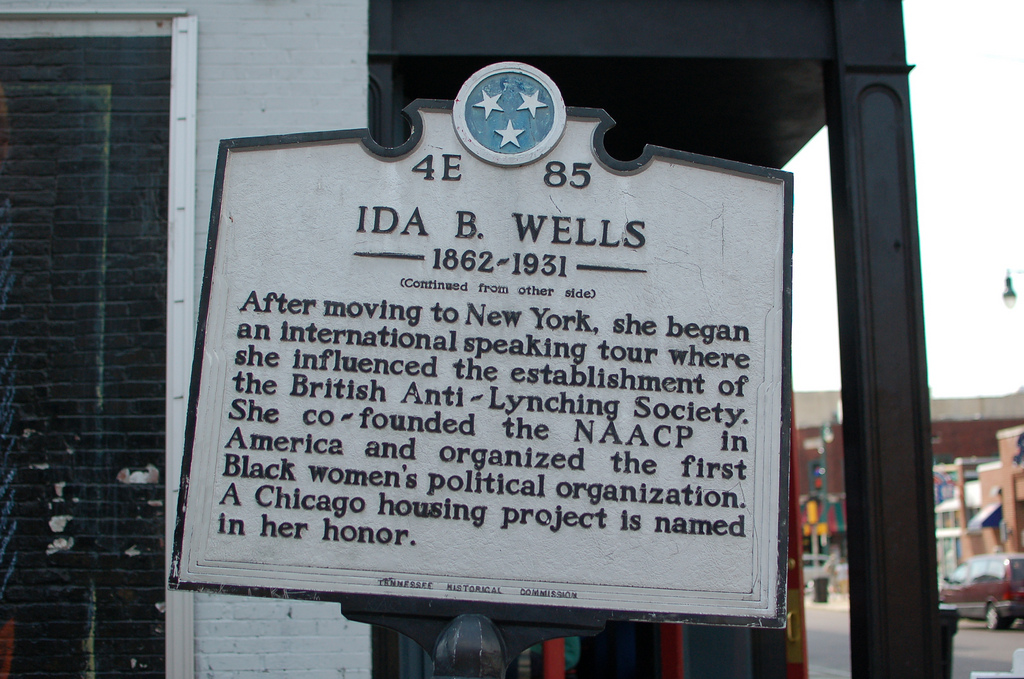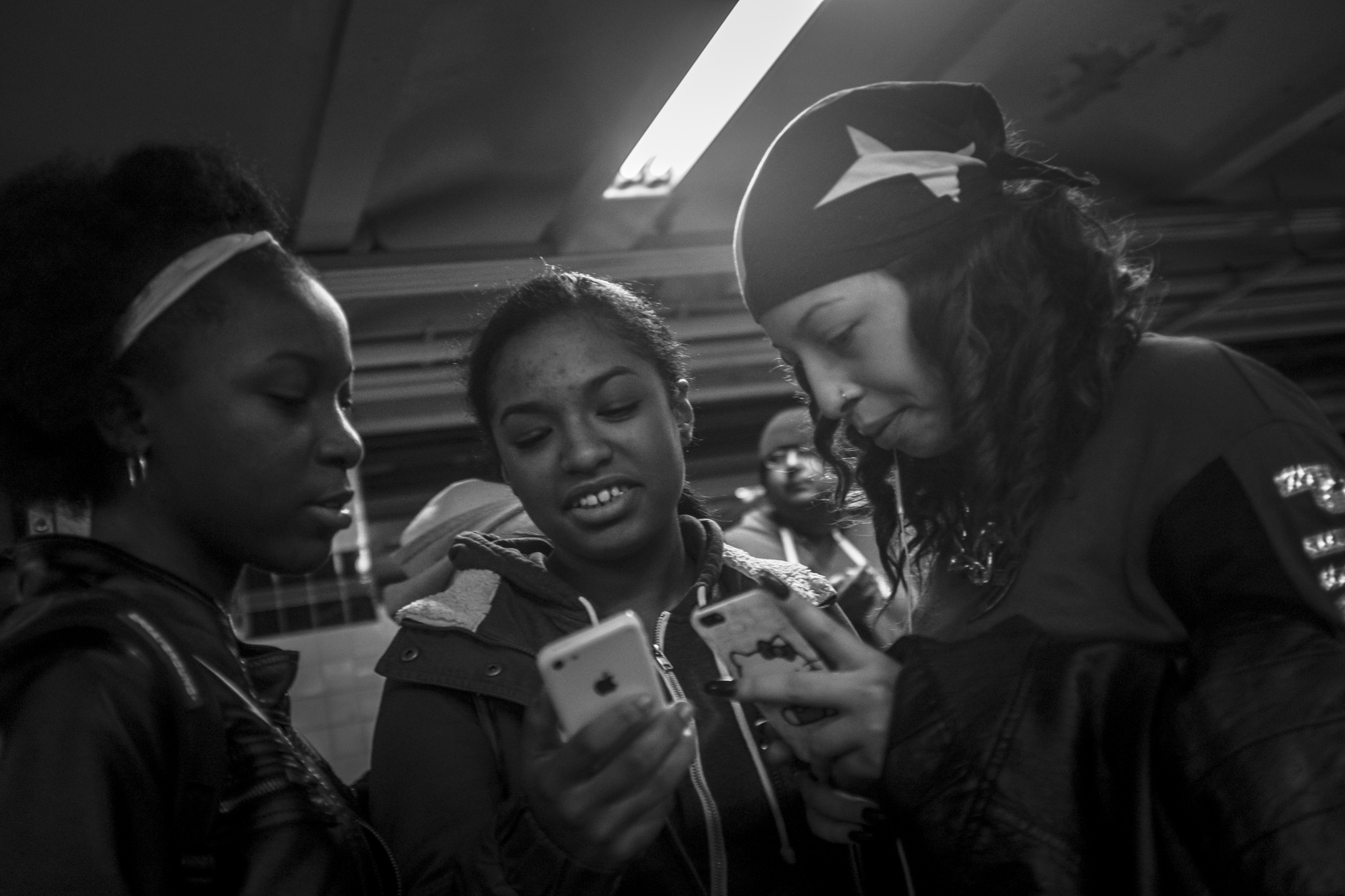
How the Ida B. Wells Society is working to diversify the ranks of investigative reporters
Nikole Hannah-Jones is an investigative journalist and a co-founder of the Ida B. Wells Society for Investigative Reporting. Today, Knight Foundation is announcing $150,000 in new support for the society to increase diversity in the ranks of investigative reporters.
A few years ago, I was sitting in the lobby at a computer-assisted reporting conference with three other journalists, when looking around, one of us jokingly remarked that we were about 95 percent of the black journalists there.
After a few chuckles, the conversation turned serious. For years, we had been attending investigative reporting conferences with just a handful of other journalists of color. And when we looked across the journalism landscape, it was rare to see black journalists on investigative teams and at investigative news organizations.
We all had our own stories about how hard it was for us to get these positions. How newsrooms often did not invest in training black reporters in data and investigative reporting. How we rarely were groomed for these positions or given the leeway to just dig for a while to see what we could uncover. How we seldom saw reporters on investigative teams who looked like us who could guide, inspire and mentor us.
And then, we all had our own stories about the excuses we had heard through the years about how, in an already disproportionately white profession, the ranks of investigative reporting were even whiter. The No. 1 excuse, of course, was that newsrooms wanted to hire diverse candidates, but there just weren’t enough qualified candidates to go around. Yet, we’d all personally recommended reporters for jobs but been told, somehow, that they never had the “right experience” or enough training, or just weren’t the best “fit.”
As we shared our war stories and frustrations, the conversation turned to how if we waited for newsrooms and existing journalism organizations to tackle this problem, the needle would never move. As black journalists, we understood the particular challenges journalists of color faced and we believed we were uniquely positioned to address them.
That is how the idea for the Ida B. Wells Society for Investigative Reporting was born. We named our organization after Ida B. Wells, an investigative journalist who documented lynchings and other racial violence in the South and Midwest in the 19th and 20th centuries, to demonstrate that there is a long tradition of black investigative reporters who have largely gone unnoticed and uncelebrated. Our work continues her legacy.
We launched the society last year at the National Association of Black Journalists convention in Washington, D.C., and it became immediately clear that we had hit on a need. Within days of our launch, 600 people signed up as members. Our first three investigative reporting boot camps—which cost only $25 for members—sold out within days. These boot camps were the most diverse journalism training workshops I have ever attended.
We have been told again and again how useful such training is, and critically, how for many journalists attending one of our sessions was the first time they’d been trained by other journalists of color and how much that meant to them. Our inboxes are inundated with emails from journalists across the country asking us to hold our boot camps near them and from organizations and colleges that want to partner with us.
The response to the society, the thirst for the type of training and mentorship we provide, has been among the most gratifying experiences of my life. Still, for the past year, the organization has been run by four journalists who hold other full-time jobs; it has been exhausting and we are stretched thin.
That is why this grant from Knight Foundation is such a game-changer for our burgeoning organization. The grant will go to capacity-building to ensure our organization has a vision and a plan that will ensure our success and longevity.
Knight Foundation’s funding will enable us to hire our first full-time manager who will help us develop our strategic plan and attract new investment and partnerships. It will also provide funding for training workshops, including three data journalism and coding boot camps geared toward programmers and journalists of color, and to help develop our mentoring program aimed at growing the next crop of investigative reporters and keeping them in the field.
With the help of Knight Foundation, the Ida B. Wells Society for Investigative Reporting will live up to its motto: Be twice as good. It is a play on an old truism about what it takes for black Americans to be successful, but also speaks to our mission to provide training of the highest caliber to help journalists of color. By doing this, we intend to rid newsrooms of the excuses they’ve so long used as we will know there is a pool of qualified applicants—because we will have trained them.
For more about the Ida B. Wells Society for Investigative Reporting, visit idabwellssociety.org, subscribe to its newsletter or email [email protected]. Membership in the society costs $20 per year, but the society is waiving the fee for people who register before August 2017.
r
-
-
Community Impact / Article
-
Journalism / Article
-
Journalism / Article
-
Journalism / Article
-
Journalism / Article
-
Journalism / Article
Recent Content
-
Journalismarticle ·
-
Journalismarticle ·
-
Journalismarticle ·








